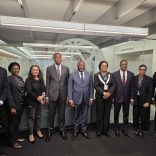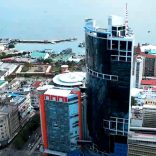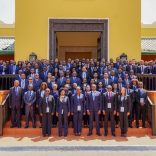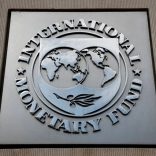Mozambique government approves $20 mln BADEA loan to build two district hospitals
IMF denies claiming there are other “undisclosed debts”

CoM (file photo)
The International Monetary Fund (IMF) has categorically denied claims made in some of the Mozambican media that the IMF has accused the Mozambican government of concealing further “undisclosed debts”.
On Tuesday the news sheet “Correio de Manha”, echoed by the weekly “Magazine Independente”, claimed that IMF Deputy Director Sean Nolan had revealed the existence of other, unspecified hidden debts at an IMF press conference in Washington on 12 January.
The IMF promptly issued a denial, pointing out that Nolan “simply made factual statements concerning the absence of a broad-based movement towards debt distress in low-income developing countries. He also stated that the debt situation has, however, worsened in some countries including Mozambique.”
The IMF statement added “While Mr. Nolan confirmed that the previously hidden debt contributed to a worsening of the debt situation in Mozambique, he did not state, contrary to allegations, that undisclosed debts still exist”.
The Washington press conference concerned the IMF’s annual report on low income developing countries, and when it came to debt issues Nolan cited Mozambique as “one of a number of high profile examples where things have gone wrong”.
“Mozambique is a good example, where there’s a lot of undisclosed loans that suddenly materialize out of nowhere. They’ve been undertaken by state enterprises”, Nolan said.
He was clearly referring to the government-guaranteed loans for over a billion US dollars, contracted under the previous government, headed by President Armando Guebuza, but which were kept secret from the Mozambican public , and from the government’s international partners, including the IMF.
Those loans only became public knowledge in April 2016. The two loans concerned were to the security-related companies Proindicus (622 million dollars) and Mozambique Asset Management, MAM (535 million dollars). The fact that these loans had not been disclosed led the IMF to suspend its programme with Mozambique, and most other western donors and funding agencies followed suit.
Together with the known 850 million dollar loan to the Mozambique Tuna Company (EMATUM), these government guaranteed loans added 20 per cent to Mozambique’s foreign debt, pushing it to unsustainable levels.
Restoring normal relations with the IMF depends on an independent, international audit of Ematum, Proindicus and MAM to ascertain how all the money was spent. That audit is in the hands of the US company Kroll, regarded as the foremost forensic audit company in the world, and should be completed by the end of February.
The IMF’s statement ended with the pledge that “the IMF remains committed to working with the Mozambican authorities to maintain economic stability and achieve inclusive growth”.












Leave a Reply
Be the First to Comment!
You must be logged in to post a comment.
You must be logged in to post a comment.